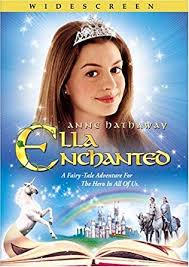

Erich Fromm's "Man for Himself" published in 1947
Chapter III. Human Nature and Character/ 2.Personality/ b. Character: 第3章.人類的天性及性格/2.個性/b.性格
(1) The Dynamic Concept of Character 性格的動態觀念
- Character is defined as "the pattern of behavior characteristic for a given individual". 性格是指某ㄧ個人特定重覆的行為特徵
- The fundamental basis of character is in specific kinds of a person's relatedness to the World: 性格是建立在個人與外界如何相關聯的基礎上(去得到需要的資源)
- (a) by acquiring and assimilating things (assimilation), and 以要求及同化外界的方式;
- (b) by relating himself to people and himself (socialization) 以關聯他自己及別人的方式(群體動物,需要組織/社會,領導其他人或被組織/社會同化)
(2) Types of Characters: The nonproductive Orientations (unconscious, subconscious, Conditioned Reflexes, not thinking) 性格的種類: 固定無變通的取向
- (a) Receptive Orientation: The way to get what they wants is to receive from outside source. 接受型取向:以等待接受的方式去得到外界資源
- (b) Exploitative Orientation: They take things away from others by force or cunning. 奪取型取向:以力量或是智能的方式去奪取外界資源
- (c) Hoarding Orientation: Their security is based upon hoarding and saving. 囤積型取向:以囤積或是儲存外界資源的方式來得到安全感
- (d) Marketing Orientation: Oneself is as a commodity and one's value is as exchange value. 行銷型取向:自己的所有物都是可交易的商品,以此方式取得更多外界資源
(5) Blends of Various Orientations 各個取向的變形
(a)
The Receptive Orientation (Accepting) 接受型取向
Positive
Aspect 正面
|
Negative
Aspect 負面
|
accepting
|
passive, without initiative
|
responsive
|
opinionless, characterless
|
devoted
|
submissive
|
modest
|
without pride
|
charming
|
parasitical
|
adaptable
|
unprincipled
|
socially adjusted
|
servile, without self-confidence
|
idealistic
|
unrealistic
|
sensitive
|
cowardly
|
polite
|
spineless
|
optimistic
|
wishful thinking
|
trusting
|
gullible
|
tender
|
sentimental
|
E.g. In movie Ella Enchanted, a fairy gave
Ella a gift of “obedience”.
|
|
(b)
The Exploitative Orientation (Taking) 奪取型取向
Positive
Aspect
|
Negative
Aspect
|
active
|
exploitative
|
able to take initiative
|
aggressive
|
Able to make claims
|
egocentric
|
proud
|
conceited
|
impulsive
|
rash
|
self-confident
|
arrogant
|
captivating
|
seducing
|
E.g. Steve Jobs
|
|
Positive
Aspect
|
Negative
Aspect
|
practical
|
unimaginative
|
economical
|
stingy
|
careful
|
suspicious
|
reserved
|
cold
|
patient
|
lethargic
|
cautious
|
anxious
|
steadfast, tenacious
|
stubborn
|
imperturbable
|
indolent
|
composed under stress
|
inert
|
orderly
|
pedantic
|
methodical
|
obsessional
|
loyal
|
possessive
|
E.g.
|
|
Positive
Aspect
|
Negative
Aspect
|
purposeful
|
opportunistic
|
able to change
|
inconsistent
|
youthful
|
childish
|
forward-looking
|
without a future or a past
|
Open-minded
|
without principle and value
|
social
|
Unable to be alone
|
experimenting
|
aimless
|
undogmatic
|
relativistic
|
efficient
|
overactive
|
curious
|
tactless
|
intelligent
|
intellectualistic
|
adaptable
|
undiscriminating
|
tolerant
|
indifferent
|
witty
|
silly
|
generous
|
wasteful
|
E.g. Richard Branson
|
|
(3) The Productive Orientations (rational, realistic, creative,..)
(4) Orientations in the Process of Socialization
(5) Blends of Various Orientations
--------------------------------------------------------------------------------------------------------------------------
My simple explanation: (我個人簡單的解釋)
Imagine you were a baby. You need foods but not capable. How could you get resources from outside world? (想像你是個小嬰兒,你需要食物但是沒有能力取得,那你如何獲得?)
You get fed (accepted) from parents; (你被父母餵食,接受餵食)
You cry to get attention from parents. You take away from others; (你哭叫以取得父母的注意力,或是從旁人取得食物)
Parents feed you periodically (3 or 4 meals a day). You have to wait for a period of time. (你父母定時提供食物,你必須等待一段時間)
The aboves form your character bit by bit, day by day, year by year unconsciously.
(以上種種一步步日積月累形成你的性格,在你沒有意識察覺的狀態下)
You'll produce resources to provide the others one day consciously with a formed character subconsciously when you are able to. (你以後也能生產或是創造資源來提供給他人,在有意識的狀態下,但是也會受你潛意識性格影響)
AI can adopt these characters to interact with you. You used to get resources or learn things through these kind of interactions but not produce everything by yourself. It's also a better UI to provide you better UX.
(AI可以扮演其他的角色與你互動,你習慣獲得資源及學習事物從各種互動而不是都自己產出,這也是較好的使用者介面及使用者經驗)
For example:
For newbies with Receptive Orientation, an AI with Exploitative or Hoarding Orientation can lead him/her to go though some processes to achieve some function as an adviser. System can also know more this user to build his/her user profile and then AI can communicate with this user more efficiently.
For experienced users with Exploitative or Hoarding Orientation, they can use more voice commands to jump among processes to make his/her work done as to have his/her own VIP room.
System should built a road-map as google map for all services. It provide an environment for AI and users to run works on it and it keeps updates itself in the meantime.



